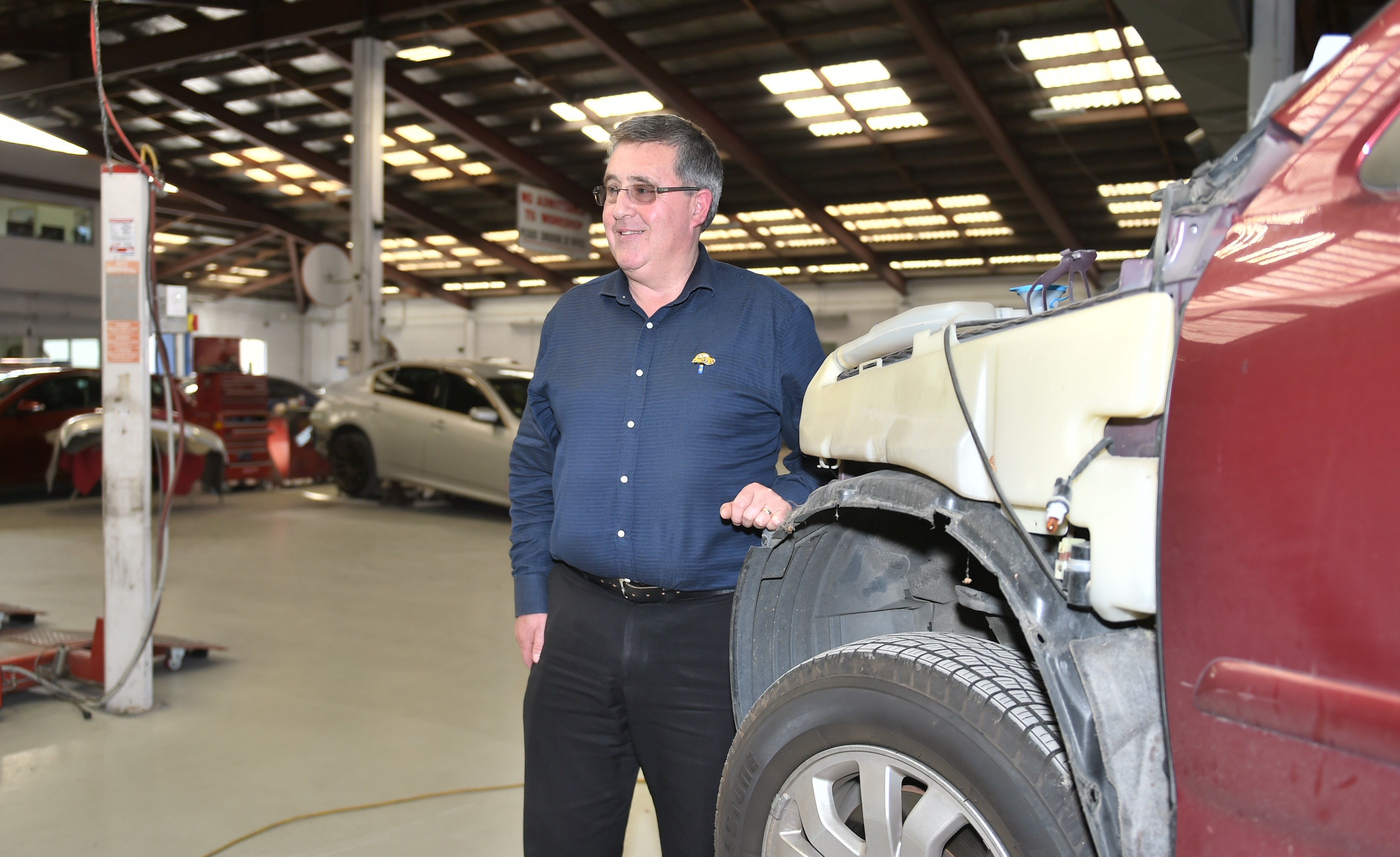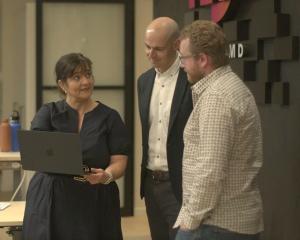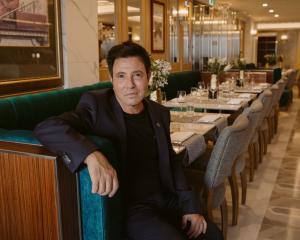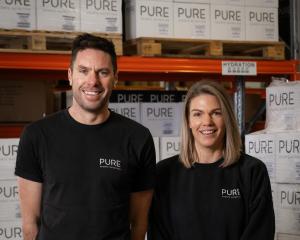
The bright yellow Volkswagen Beetle has been a landmark on the Dunedin skyline since 1965, when it was installed up a pole at Bridgman Street Panelbeaters. It was joined by Vicky on another pole in 2003 and, coupled with the jingle "hey diddly dole, the VW’s up the pole", the initiative has provided priceless advertising.
It was the brainchild of the firm’s founder, the late Lerwick Johnston, who returned from a world trip with the idea to drum up business.

That business is celebrating 60 years, and is now under the management of Mr Johnston’s son Brent.
Bridgman Street Panelbeaters was originally established as a partnership by Lerwick Johnston and Charles Cermak in 1956. The partnership was short-lived, and Mr Johnston took over as sole proprietor, forming a limited liability company in 1957.
At that time, Brent Johnston was 7 months old and was given a 1% shareholding.
He quipped he had also been in business for 60 years.The Johnston family have strong family and business ties to Dunedin. Brent’s great-grandparents were early settlers from the UK.
Robert Johnston, previously from the Shetland Islands, and his wife Emily met on board May Queen, destined for Dunedin, in 1872 and were married two years later.
Robert soon established his own business as a merchant tailor, R. Johnston and Sons, in George St, later expanding into Mosgiel and Kaitangata.
His great-grandson Brent developed a keen interest in motor vehicles while spending time at the business after school. He began his apprenticeship at the firm in 1972.A decade later, he was thrust into a management role following the sudden death of his father, aged 51.
Brent recalled the last time he saw his father. It was a Thursday night and his father told him, "OK, you can lock up tonight, I’ve done it long enough."
"So I locked up and said, ‘See you in the morning.’ That was the last time I saw him alive," he recalled.
It was a tumultuous time for the 25-year-old, whose son was then 6 months old. His mother died nine months later. Two younger brothers were also involved with the business. Mr Johnston bought them out in 2002.It had been an "interesting journey" and time had passed very quickly, he said. He had overseen major expansion, including a purpose-built spray paint facility, which was one of the largest in the country. Staff now numbered 31.
The biggest changes included moving from air-dry paint to baked, petroleum-based products to water-based, and from the "thumb measure" to electronic measurement.
The business was now certified as a Jaguar Land Rover aluminium repairer, the first in New Zealand to be certified.
That required a separate aluminium workshop to avoid metal reactivity between non-aluminium and aluminium vehicles.
There was also the need to keep up with technology, which was changing on a regular basis, and the countless safety components.
The biggest challenge was recruiting staff.
The firm was very fussy when it came to employing people, he said. It was not uncommon to be working on cars worth between $300,000 and $400,000 and staff needed to be keen and passionate about their work.
Mr Johnston was a strong supporter of training apprentices through the Otago Chamber of Commerce’s 4Trades scheme.
Business was going well — although he was hoping for a mild winter, given the workload always increased with winter driving — and the intention was to keep getting "bigger and better".
Mr Johnston praised his 2-IC and paint shop manager Ray Loader, who had been at the firm for about 38 years. He was the longest-serving staff member.Mr Loader (68) said cars and technology were changing all the time and the business had to adapt.
"It’s been very difficult to get our head around some of the things we’ve done. We had to do them to keep ahead of everyone else," he said.
Mr Loader had seen a lot of staff changes over the years but many of his apprentices were still there.
"If I didn’t enjoy it, I wouldn’t be here," he said.
Some of the more unusual jobs for staff included having the rescue helicopter land outside the workshop to be repainted, repainting the gold rim on the Dunedin Town Hall clock, and also painting the interisland ferry.
As for Victor the VW? He was actually the second Victor, as the original 1957 model was replaced with a fibreglass replica when it started to "fall apart". Vicky was made from the same mould so was a "clone" of Victor, Mr Johnston said.












